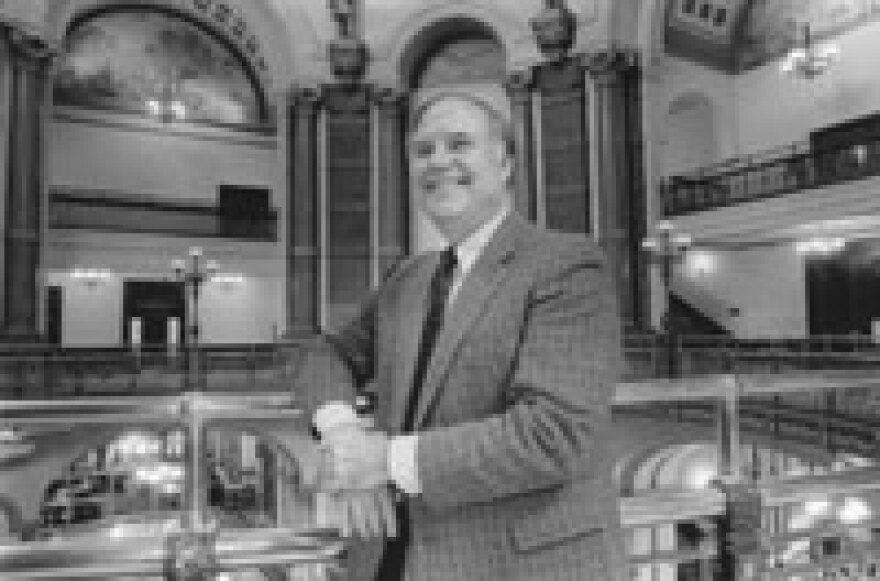Are we killing the goose that’s been laying golden eggs in the coffers of state and local governments for the last dozen years?
Since 1991, Illinois’ riverboat gaming industry has produced some $3.5 billion in tax revenues for the state and for the nine communities in which the floating casinos have docked.
But the ongoing bounty may be susceptible to a couple of worrisome trends documented in Illinois Gaming Board reports and in a new study from the Illinois Economic and Fiscal Commission. The ominous portents:
• Fewer people are heading to the boats. Admissions in July were down more than 14 percent from the July 2002 tally, a loss of more than 235,000 patrons. Indeed, July was the 11th month in a row to see fewer bettors on board than in the corresponding month a year earlier.
• Casino operators’ receipts — what the house keeps after paying winning bettors — are declining. In July, casinos reported adjusted gross receipts of $143.6 million, compared to $158.6 million in July 2002, a dip of more than 9 percent. Monthly receipts have been less than the previous year for 10 consecutive months.
For all of fiscal year 2003, admissions were off 4.6 percent, while receipts dipped almost 2 percent for the state’s nine licensees.
Still, despite fewer admissions and lower receipts, the state’s main checking account took in $554 million in gaming taxes last year, some $84 million more than in FY2002. But the increase largely was due to a July 1, 2002, tax hike that boosted the top rate on the highest-grossing boats to 50 percent from 35 percent. Even so, the new money was only about two-thirds of what the tax hike was expected to produce.
The FY2003 news was worse for the locals, who get a much larger share of gaming revenues from admissions fees. Fewer patrons resulted in a collective loss of almost $3 million, roughly a 2.5 percent drop, for the eight towns now hosting boats.
In the current budget, meanwhile, Gov. Rod Blagojevich and Illinois lawmakers are counting on an additional $190 million in gaming taxes from yet another rate hike, this one including a 70 percent bite on receipts in excess of $250 million. They also hope to net $350 million from the sale of a dormant 10th license.
The projections seem shaky in light of the continuing patron drain documented in the Gaming Board’s monthly reports. And the fiscal commission’s gaming study cautions that increased gaming revenues could be as low as $125 million in FY2004.
“What we’re seeing from the numbers is that the state is getting the revenue because of the tax increase, but the adjusted gross receipts and the number of participants are down,” says Dan Long, the commission’s executive director. “The boats at that rate are not making the investments in their facilities, and they are cutting back on the freebies and promotional stuff.”
Also skeptical is Tom Swoik, executive director of the Illinois Casino Gaming Association, the industry’s trade group. “I don't believe they’re going to generate anywhere near what they’re anticipating,” he says. Swoik and other industry officials blame the eroding patron base and declining casino revenues on the tax hikes, which leave Illinois with the highest gaming taxes in the nation.
With an eye to the bottom line, Illinois’ casino operators have been belt-tightening for more than a year, laying off workers, cutting back on expansion plans, limiting promotional activities, shortening hours, increasing prices for food and drinks, and charging for parking and admission.
Besides higher tax rates, Illinois has tighter rules than neighboring states. Thus, Illinois boats are at a disadvantage against competitors docked in Indiana, Missouri and Iowa. For example, the top tax rate is 35 percent in Indiana, where five casinos in the state’s northwestern corner can accommodate 10,000 gamblers, 24 hours a day. In contrast, the four boats in suburban Chicago can handle only 4,800 at a time, and are required to close two hours every day.
So it’s no surprise, Swoik says, that the Indiana boats are drawing Chicago-area customers across the border. “In the last fiscal year, Illinois lost 3.5 percent of its market share to Indiana,” he says. “Revenues were up 12 percent for Indiana boats, while they were down 2 percent for Illinois.”
In the current economic climate, the commission study notes, people have less money to spend on such nonessential items as entertainment. Or perhaps “the novelty of dockside gambling may have lost its draw,” the study suggests.
Yet, while casino revenues dropped last year in Illinois, they were up for boats in all three neighboring states, the study reports. “These figures support the argument that Illinois gaming patrons are looking elsewhere to board riverboats,” the study concludes.
Whatever the underlying cause for the exodus, gaming revenues aren’t likely to grow under current conditions, and an ongoing legal wrangle could delay the sale of the 10th license for years.
As lawmakers struggled last spring to find new revenue, the gaming industry proposed rolling back the earlier tax hikes — to a top rate of 35 percent — and letting casinos have more slots and table games. The changes would level the playing field with nearby states and keep Illinois gaming dollars at home, industry leaders said, while producing $274 million more for the state and $75 million more for local governments.
The plan went nowhere after Gov. Blagojevich pulled the plug on gaming talks. But as state finances remain uncertain and bills continue to pile up, the governor and the legislature might be tempted to take another look. Don’t bet against it.
Charles N. Wheeler III is director of the Public Affairs Reporting program at the University of Illinois at Springfield.
Illinois Issues,September 2003






